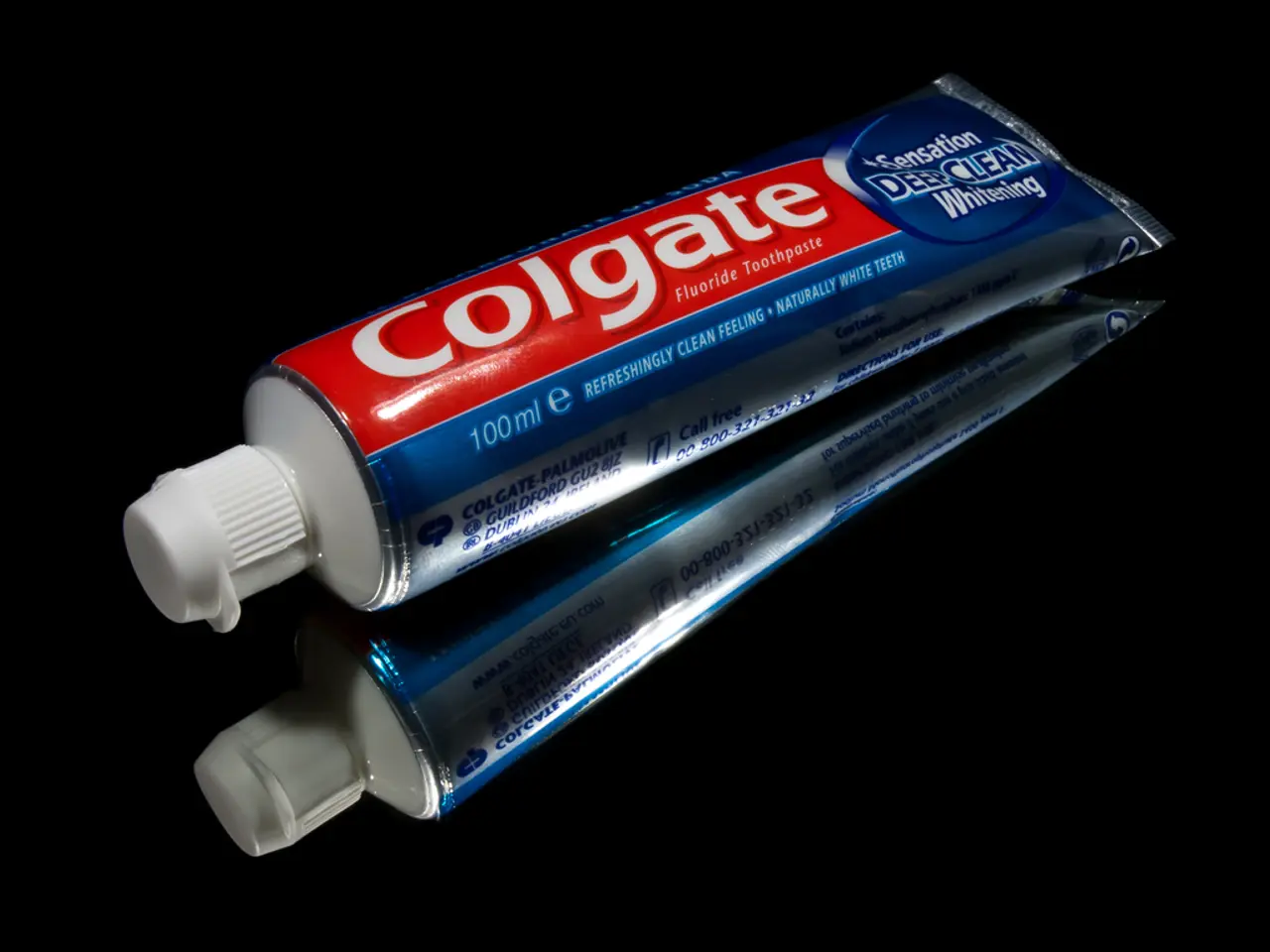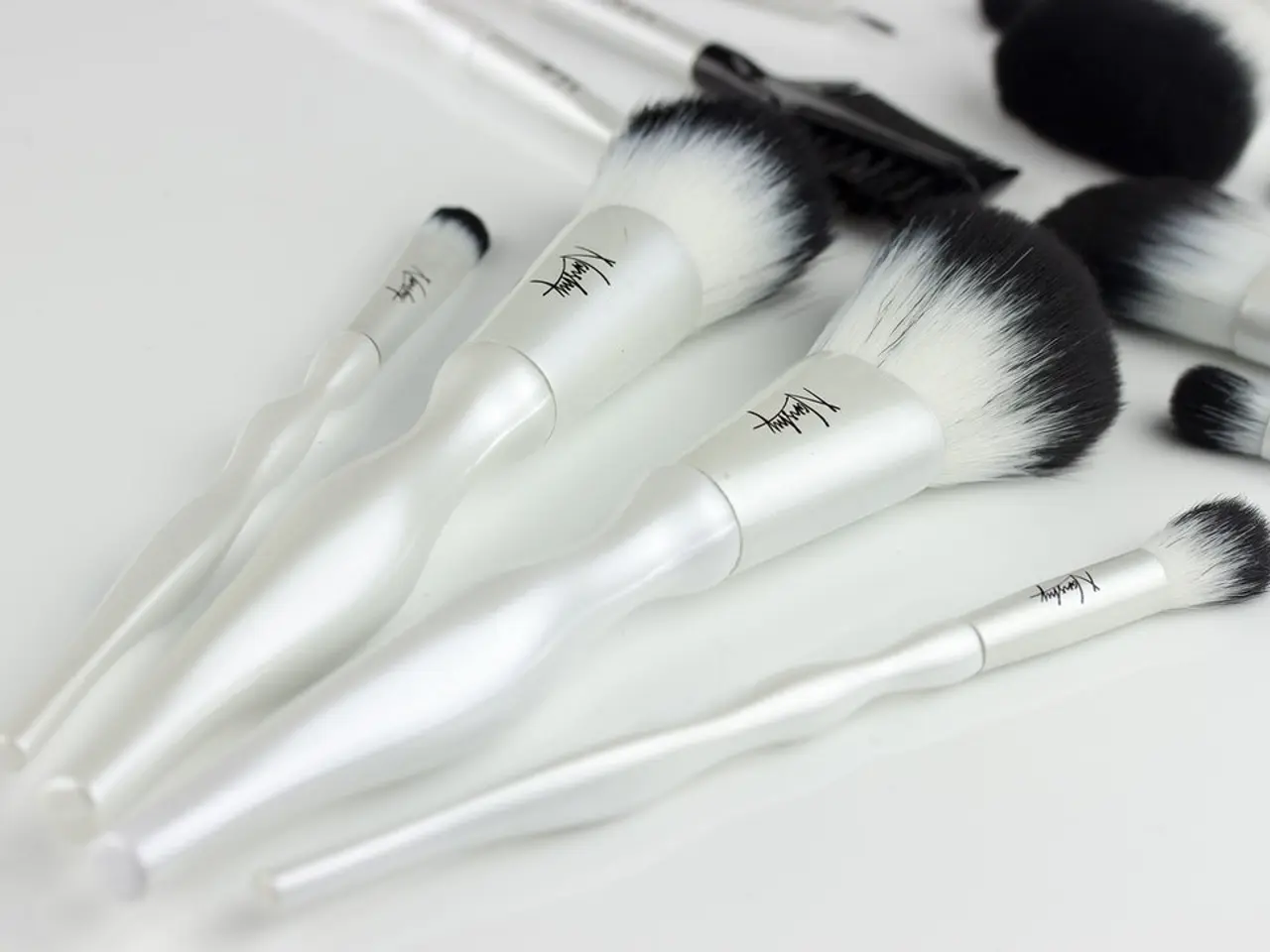The Safety of Utilizing Titanium Dioxide in Toothpaste?
In the European Union, the use of Titanium Dioxide (TiO2) in toothpaste is permitted, but under strict conditions. The regulatory body, the Scientific Committee on Consumer Safety (SCCS), has stated that TiO2 must not be photocatalytic and must have a stable coating. Moreover, TiO2 is not allowed in spray products due to inhalation risks [1][2].
The safety of TiO2 in toothpaste has been a subject of concern due to the potential carcinogenicity of certain powdered forms when inhaled. However, the SCCS has assessed specific uses of TiO2 in cosmetics, including toothpaste, and has deemed its use acceptable under defined safety and formulation conditions [1][2].
Titanium dioxide in toothpaste is primarily used as a whitening agent and texture improver. However, concerns about the potential harm of titanium dioxide nanoparticles, which can penetrate biological barriers more easily, have arisen. The mutagenic effects of titanium dioxide are linked to its nanoparticle form, which might accumulate in organs like the liver or spleen [3].
Given these concerns, many manufacturers are voluntarily removing TiO2 from toothpaste, particularly products aimed at children. Natural alternatives like hydroxyapatite-based tooth powders are gaining attention as safer options.
It is essential for consumers to be aware of the ongoing regulatory updates regarding TiO2 in toothpaste. The European Medicines Agency is expected to reassess TiO2 in cosmetics soon, which may influence future regulations on toothpaste.
For those who wish to avoid TiO2, it is advisable to choose toothpastes labeled as free of titanium dioxide. Look for "CI 77891" or "Titanium Dioxide" on the ingredient list to ensure your toothpaste is free of this compound.
Despite the concerns, the German Federal Institute for Risk Assessment has stated that no conclusive evidence shows harm from titanium dioxide in toothpaste [4]. However, considering the ongoing regulatory considerations and safety assessments, it may be wise to select titanium dioxide-free toothpaste alternatives, especially for children or frequent users.
References:
[1] European Commission (2020). Opinion of the Scientific Committee on Consumer Safety on the safety of titanium dioxide (TiO2) in cosmetic products, including nanomaterials (SCCS/1692/20).
[2] European Commission (2014). Commission Regulation (EU) No 643/2014 of 18 June 2014 on the cosmetic claims that may be made for products intended to reduce dental caries.
[3] European Chemicals Agency (2020). Classification, Labelling and Packaging (CLP) Regulation.
[4] German Federal Institute for Risk Assessment (2016). Opinion on the safety of titanium dioxide (TiO2) in foodstuffs and feedstuffs.
- In the realm of medicine and health-and-wellness, chronic diseases, such as cancer, and autoimmune disorders have been prominent areas of research, alongside mental-health conditions.
- As part of workplace-wellness initiatives, therapies-and-treatments for respiratory-conditions, digestive-health, eye-health, and hearing are often discussed.
- The use of Titanium Dioxide (TiO2) in medicine extends beyond toothpaste, with its application in cosmetics being evaluated by the Scientific Committee on Consumer Safety (SCCS).
- Medical-conditions, like skin-conditions, require attention in the field of skin-care, where TiO2 has been used in the past.
- Neurological-disorders, such as stroke or Alzheimer's disease, are examples of cardiovascular-health-related conditions that are being researched intensively.
- Medically, Medicare plays a crucial role in covering the costs of treatments for various conditions, including chronic diseases and autoimmune disorders.
- CBD, a compound derived from cannabis, is increasingly being studied for its potential effects on health-and-wellness, particularly in relation to pain management and mental-health conditions.
- Skin-care routines often involve the use of Zinc Oxide, a sunscreen ingredient, as an alternative to TiO2 due to concerns about its carcinogenicity.
- It's worth noting that the use of TiO2 in cosmetics is regulated by various authorities, such as the European Commission and the German Federal Institute for Risk Assessment.
- For individuals with specific medical-conditions or those preferring natural products, it's essential to look for Medicated Cosmetic products that cater to their unique needs or are free of certain ingredients, like Titanium Dioxide.




